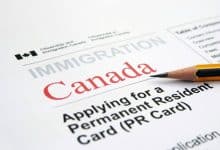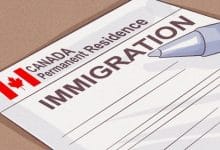Immigration Reference Letter 2025
How To Write An Immigration Reference Letter
Immigration Reference Letter consitute a prerequisite to immigrate to Canada. As a working adult, you’ve most likely received at least one reference letter from a previous employer summarizing your work history. During the recruitment process for a job you’ve applied for, your potential new boss would require this. Immigration reference letters are a completely different story. Keep reading to learn how to write a flawless immigration reference letter.
Applying For Canadian Permanent Residency
The Express Entry completeness check applies to all applicants for Canadian Permanent Residency (PR). Within two months of receiving an invitation to apply, you must submit your complete electronic application for permanent residency (ITA). This application, as well as all supporting documentation, must be submitted electronically through your online profile.
Immigration Reference Letter
When you submit a complete application, your Express Entry process will begin. Your Immigration reference letter is one of the most significant documents you’ll require. You’ll be invited to upload a reference letter from each employer for each job you add while on your personal online profile.
Who must submit an immigration reference letter?
You must submit an immigration letter as the lead applicant. Your spouse or common-law partner will also be required to do so, if they have worked in Canada.
What is an immigration reference letter?
You’ll need immigration reference letters from all of the companies you’ve worked for to show the integrity of your credentials and job experience.
If you want to apply for permanent residency (PR) in Canada through the economic immigration route, your work history is a critical factor in your application’s success.
How To Write An Immigration Reference Letter
The follow are vital things to add to your immigration reference letter to make it flawless;
1 It ought to be a formal/official document.
Because immigration is such a serious matter, your reference letter must be in the form of an official document. The paper must be printed on the company’s letterhead and include all of the company’s contact information.
2 List all noteworthy personal information
Include your complete contact information, including your name, phone numbers, mailing address, and email address. To minimize delays or rejection, make sure all of the information is correct.
3 Include all relevant employment information.
The specifics of every position you’ve held while at the organization should be listed in the letter. Include whether you are currently employed, your dates of employment, your job description, which details your primary responsibilities in your role, working hours, salary information, and any perks, if applicable. These facts will assist the visa officer in determining whether you choose the correct National Occupational Classification (NOC) code.
4 Include the contact information for your line manager or HR officer.
Submit your line manager’s or a relevant human resources official’s contact information. Make sure the name and job title of the manager are placed beneath the signature.
The company stamp must be applied to the letter. If your letter doesn’t include a stamp, try to include your manager’s (or whoever is signing) business card. This gives the letter more credibility.
What if I’ve already worked in Canada?
If you worked in Canada, you’ll need to send copies of your Canadian tax returns as well as Canada Revenue Agency notices of assessment (CRA). These paperwork should show how long you’ve been working in the country.
What if I’m self-employed?
If you’re self-employed, you’ll need to provide documentation that you own a business, as well as all business registration paperwork such as your articles of incorporation, income statements, and client statements confirming that you’ve completed work for them.
How to request an immigration reference letter from your present and prior employers
Don’t hesitate for the last minute
It will take some time to put these letters together, so get started as soon as possible. You must transmit all papers, including work reference letters, when applying to Express Entry and Provincial Nominee Programs (PNP). This must be completed within two months of receiving your invitation to apply permanent residency.
Your approach should be straightforward and courteous.
There’s a risk you’ll have to justify why you need this letter. You must inform your present and prior employers about the procedure in an open and courteous manner. Provide them with information about your approach and when you’ll need the document from them, and don’t rush them.
Be specific about what you require of them.
In reference letters for Canadian immigration applications, the IRCC specifies exactly what should be stated. You’ll have to tell your current and prior employers exactly what you require. Consider sending them a template for an immigration reference letter.
Frequently Asked Questions
What happens if I can’t obtain an Immigration Reference Letter?
You may attempt to establish your case by presenting other documents. Paystubs, letters of appointment, job offers, letters of promotion, certified letters from former coworkers, and photos demonstrating your work life and accomplishments are examples of documents that can be used in place of Immigration Reference Letter.
You can also submit a signed letter explaining why you have been unable to obtain an immigration reference letter.
Does Proof of ties count?
Before granting a work permit, study permit, or visitor visa, immigration officials will need to be convinced that you will leave the country once your documents expire. If you can show that you have strong ties to your home country, immigration officials will be sure that you will return home after your visit, course, or work is completed.
What you’ll have to show are;
- A strong bond with family members that live in your nation
- Your present employment situation
- Future career opportunities at home
- Proof of ownership of a business, properties, or other significant moveable or immovable assets
What if I’m not a citizen of the nation where I’m now residing?
If you do not have citizenship in the nation where you are presently residing, your immigration status will have an impact on your assessment. You must be able to demonstrate that you will return to your home country when the time limit has expired. If your residency is about to expire, they will investigate your ties to the country in which you have citizenship.
You may want to look at top reasons for Canada visa rejections and how to avoid them
In order not to miss out on prompt updates from careerinfos.com, enter your email address below and hit the subscribe button beneath.
A confirmation link will be sent to your inbox or check your spam mails if its not in your inbox. Make sure you click the link to confirm your subscription in order not to miss any updates from this blog. All comments (related to the post above) should be dropped via the comment section below.








